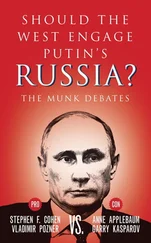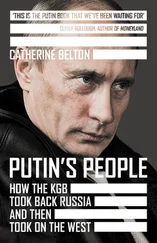In World War II the USSR lost something like twenty-six million people, and innumerable buildings were destroyed. Like many others, Putin grew up in a communal apartment where several families lived together, usually one family per room, and shared a kitchen. There was no hot water, no bathtub. The toilet, out on the landing, was filthy and freezing. A teacher who once visited his home found the bathroom “horrendous.” [47] Ibid., p. 10.
The stairs were infested with “hordes of rats” [48] Ibid.
that Putin chased with sticks for fun, though it wasn’t so much fun when, cornered, they turned and attacked.
Not all the lessons he learned were harsh. Friendship with a Jewish family that lived in one of the communal apartment’s rooms helped inoculate him against anti-Semitism. He would also have close relations with Jewish teachers and martial arts mates. One of his Jewish teachers, Vera Gurevich, was responsible for Putin’s learning German. Spotting his “potential, energy, and character,” [49] Ibid., p. 17.
she decided to devote time and attention to him even though he seemed hell-bent for a life of street fights and petty crime. Under her tutelage, he developed a taste for German that would in time play an important part in his KGB career. He continued studying it in high school, where his chemistry teacher also noticed his force and drive, but still remarked, “He was ordinary, there were so many like him.” [50] Andrew Jack, Inside Putin’s Russia (New York: Oxford University Press, 2004), p. 52.
Yet not only did that rough and ordinary boy become president of Russia, but when in Israel in 2005 he found time to visit that old teacher and tell her that he remembered her as “honest, fair and kind,” [51] Inna Lazareva, “Remembering Vladimir Putin as a boy,” New Statesman , Jan. 15, 2015.
and then he bought her an apartment in Tel Aviv.
But back in his youth it was street fighting that was his passion and best skill. The lesson that the streets of Leningrad taught was simple, and it stayed with Putin his whole life: The weak get beaten. Weakness is both disgrace and danger. [52] Daniel Triesman, “For Vladimir Putin What’s at Stake in Metrojet Investigation,” CNN, November 6, 2015.
“The greatest criminals in our history,” Putin would say when president, “were those weaklings who threw power on the floor—Nicholas II and Gorbachev—who allowed the power to be picked up by the hysterics and the madmen.” [53] Ben Judah, “Behind the Scenes in Putin’s Court,” Newsweek , July 23, 2014.
The streets would shape not only Putin’s worldview but his tactics as well. In discussing preemptive attacks on ISIS in Syria when justifying his support of the Assad regime, he said: “The streets of Leningrad taught me one thing—if a fight is unavoidable, throw the first punch.”
The streets of Leningrad were Putin’s playing fields of Eton. They also taught the value of loyalty. Loyalty is both a useful attribute and a sign of strength, for it is often tested. The cult of strength and loyalty is Putin’s true religion.
What saved Putin from the street was a sport and a dream. The sport was Sambo, a Soviet blend of wrestling and judo that was for Putin a discipline, a philosophy, a way of life. He would eventually attain a black belt and become city champion of Leningrad. This was before he was important and opponents knew better than to beat him.
But it was not a career in sport that became his dream. It was the KGB for him. He was under the spell of KGB exploits lauded in books and films but especially in the black-and-white miniseries The Sword and the Shield, which recounted the adventures of a Soviet agent whose German was so perfect and composure so cool that he could even infiltrate the SS. Putin saw it when he was sixteen. “Books and spy movies like The Sword and the Shield took hold of my imagination. What amazed me most of all was how one man’s effort could achieve what whole armies could not. One spy could decide the fate of thousands of people.” [54] Putin, First Person , p. 22.
It all goes back to adolescence and the movies, even the difference between dissidents and KGB agents, as the Polish poet Stanislaw Baranczak observed in “The Restoration of Order”:
They went to see different movies. For them
being a man meant wearing a shoulder holster,
driving fast cars screeching around corners,
and shooting like a pro from a half squat, using both hands.
For us being grownup was more like Bogart’s grimace
a bitter irony that had to be swallowed
because you don’t spit out such things with people around. [55] The poem “Restoration of Order” by Stanislaw Baranczak in my translation from Polish was published in Dissent , Winter 1984.
Though Putin no doubt fantasized about acts of derring-do, what drew him most was the power to decide the fate of thousands. In an attempt to make his dream a reality, he went to the “Big House,” KGB headquarters in Leningrad, and inquired about the process of becoming a spy. He was rebuffed, but learned two important things. The KGB didn’t accept people who “came on their own initiative.” [56] Putin, First Person, p. 23.
If the KGB wanted you, they found you. It was the state that decides, not the individual. And the KGB was only interested in people who had served in the army or had some higher education. “But what kind is preferred?” asked Putin. The answer: “Law school.” [57] Ibid.
As he says: “From that moment on, I began to prepare for the law faculty of Leningrad University. And nobody could stop me.” [58] Ibid.
Even the little he knew about the KGB’s role in the purges could not slow him down. Not that such things were much discussed at home. His father was a “silent man” [59] Ibid., p. 4.
who said with Soviet wisdom that “only a fool would open up his soul to the world. You have to know who you are talking to.” [60] Judah, Fragile Empire, p. 10.
“I didn’t think about the purges,” said Putin. “My notion of the KGB came from romantic spy stories. I was a pure and utterly successful product of Soviet patriotic education.” [61] Putin, First Person, pp. 41–42.
It wasn’t only the purges he didn’t think about. The Sword and the Shield , the miniseries that so entranced the young Putin, came out in 1968, the same year that Warsaw Pact tanks rolled into Czechoslovakia to crush the Prague Spring that had tried to create “socialism with a human face.” No doubt in Putin’s household the reaction was the same as in many others—ungrateful Czechs, we liberated them from the Nazis and now look what they do. As usual, the intelligentsia summed up their bitter disappointment in a quip: Question: What is the most neutral country in the world? Answer: Czechoslovakia—it does not even interfere in its own internal affairs.
After graduating from Leningrad State University’s Law Department in 1975, Putin was recruited by the KGB. Either they had remembered him or he had been spotted by one of their scouts.
Putin’s romantic image of the Chekist—bold, incorruptible, wearing a long black-leather coat and dispensing revolutionary justice from a Mauser, or later, infiltrating Nazi circles or stealing atomic secrets from the West—was all part of the past. These were the Brezhnevian seventies, the era of stagnation, when dissidents were hounded and ended up in work camps or psychiatric hospitals where, as one former inhabitant described it, “After a breakfast of mush came shock therapy. You’re given a large dose of insulin, the sugar disappears from your blood and you go into shock. You’re tied to your bed with strips of torn sheets, not ropes. When they’re in shock, people go into convulsions. They scream and howl. Their eyes look like they are going to pop out of their head.” [62] Lourie, Russia Speaks, p. 312.
Читать дальше
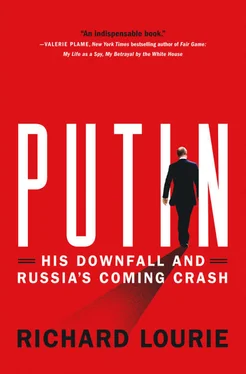

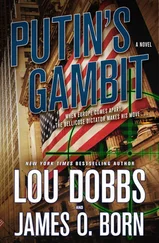
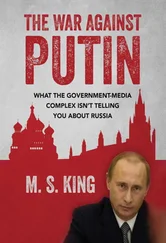
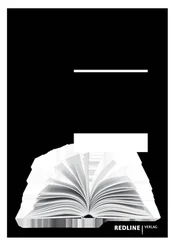
![Stephan Orth - Behind Putin's Curtain - Friendships and Misadventures Inside Russia [aka Couchsurfing in Russia]](/books/415210/stephan-orth-behind-putin-s-curtain-friendships-a-thumb.webp)

